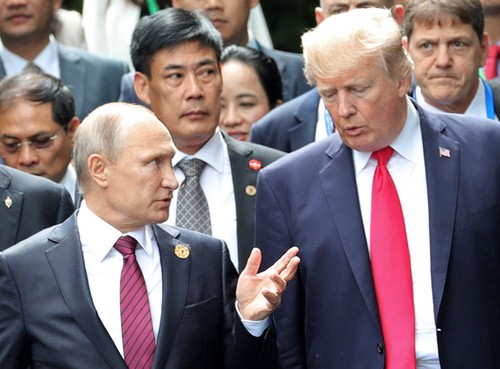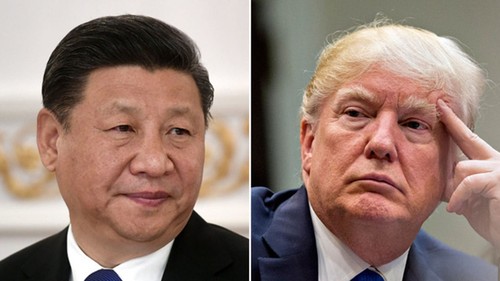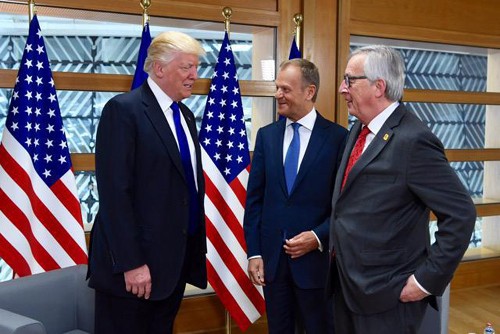 President Trump and Russian President Vladimir Putin met on the sideline of APEC Economic Leaders' Meeting in Da Nang, Vietnam (photo: Reuters) President Trump and Russian President Vladimir Putin met on the sideline of APEC Economic Leaders' Meeting in Da Nang, Vietnam (photo: Reuters)
|
Reverse in US-Russia, US-China relations
The Russia-US relation were predicted to prosper in 2017 after Donald Trump was elected the President. But in reality their relation has whirled in unprecedented confrontation. Trump’s campaign promise to improve the US’s relation with Russia was shadowed by the investigation on the so-called “Russia’s intervention in the US’s presidential election in 2016”.
Russia and the US diplomatic confrontation reached its climax when the US Congress approved a bill on tougher sanctions against Russia together with articles forcing the President to sign it for promulgation. Considering it a provocation, Russia expelled 755 American diplomats and banned the US Embassy in Russia from using some facilities in Moscow. In response, the US asked Russia to close its Consulate General in San Francisco and 2 trade missions in Washington and New York City.
The two countries had to-and-fro economic retaliation with extended sanctions on each other. The US has imposed sanctions on Russia’s key businesses of energy and weapon export.
 Chinese President Xi Jinping and US President Donald Trump Chinese President Xi Jinping and US President Donald Trump
|
The US and China also saw many ups and downs in their bilateral relation. President Trump has put pressure on China economically and politically. In the US national security strategy, China was mentioned as a threat the US’s interests. But common benefits have forced the two to maintain a constructive relation. China urged the two countries to boost cooperation, saying it is an appropriate option for both sides. After leaders’ reciprocal visits, the US-China relation has been more stable. Analysts say the US-China relation is complicated but important to international relations. Both countries have to insist on this cooperation path and avoid confrontation.
US-EU alliance challenged
Trump’s slogan “America First” has made European politicians worry about the trans-Atlantic Ocean relation. Trump shocked the EU when he said more European countries would leave the bloc after Britain and “Brexit will be successful.”

President Trump (L) at a meeting with President of the European Council and European Commission in Brussels. (photo: European Commission)
|
The US threatened to reconsider its relation with the EU and NATO. President Trump suspended negotiations on the Transatlantic Trade and Investment Partnership (TTIP) with the EU, imposed trade subsidy policies, withdrew from the Paris Agreement on Climate Change, and left open the possibility to abandon the nuclear deal that the P5+1 signed with Iran in 2015.
German Chancellor Angela Merkel has warned that the Trans-Atlantic relation has weakened and Europe must tale their fate into their own hands. In 2017, tension and changes in the US’s relations with the EU, China, and Russia were attributed to changes in the US policy. These relations are the cornerstone in maintaining global security, political and economic stability.